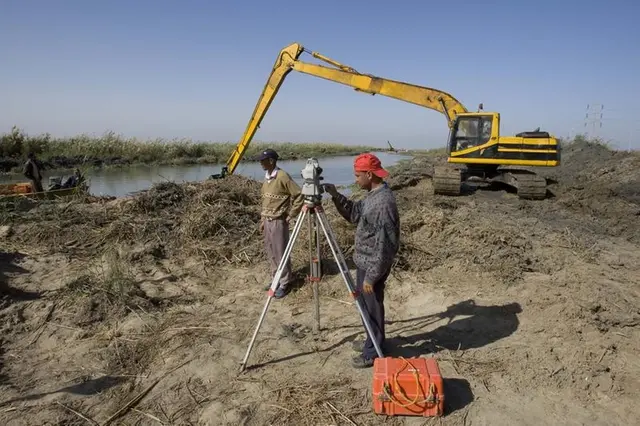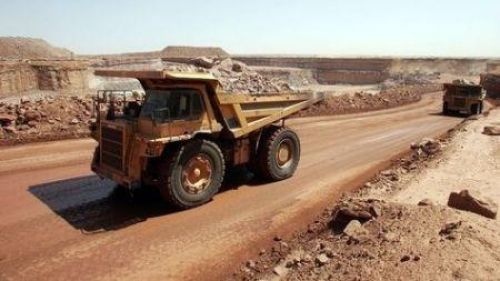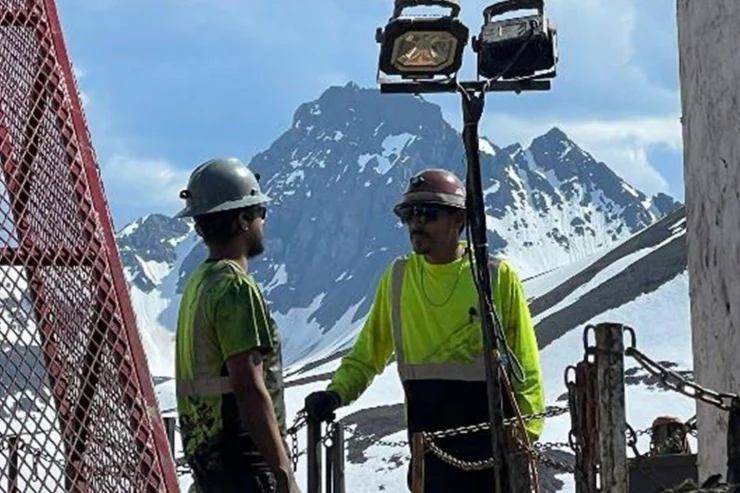Mining

Macua report uncovers massive fraud in South African mining sector

An investigation report by the Mining Affected United in Action (Macua) revealed that over R284 million allocated for Social and Labour Plan (SLP) delivery in the mining areas went missing.
Macua said this was based on audits across eleven mining communities.
The organisation said the money was either undocumented, misrepresented or effectively lost to fraud and non-delivery.
The report is called “Crumbs Capture”- a morally bankrupt system in which even the limited funds earmarked for development are misappropriated through inflated tenders, ghost projects, falsified delivery reports, and elite capture - while communities languish in deepening poverty.
The report was launched on Thursday (today).
Macua said the report, using participatory research, physical site verifications and testimonies from directly affected communities - is a culmination of three-year-long audits of 11 SLPs of mining companies in North West, KwaZulu-Natal, Mpumalanga, Limpopo, Free State and Northern Cape.
Macua said the companies from the eleven mining communities collectively reported over R376.25 million in SLP commitments but only R92.25 million was confirmed as delivered through infrastructure or community services.
This leaves a whopping R284m unaccounted for, read the report.
Macua said this was not merely a gap in implementation, but the looting of legally mandated development obligations under the guise of corporate social investment.
Collectively, according to the report, the audited companies generated an estimated R218.8 billion in turnover over the five-year SLP period, yielding estimated profits of R72.23bn. Yet from these vast earnings, only R92.25m, which is 0.13% of the total estimated profit, was delivered in tangible, verifiable community benefit.
“This is not underperformance. It is developmental theft - a system of Crumbs Capture, in which even the legally required entitlements of the poor are systematically looted, while mining companies and politically connected actors continue to profit from public deception,” the report stated.
SLP is a document that mining companies must submit to the Department of Mineral Resources and Petroleum Resources (DMPR) as part of their application for mining rights. The SLP outlines the company’s commitments to the well-being of communities and workers affected by the mine. These include human resources development programmes, mine community development plans, housing and living conditions plans, employment equity plans, and processes to save jobs and manage downscaling and closure of operations.
Mining activist Daisy Tshabangu told the attendees that despite this, there are no still developments in her area in Phola, Mpumalanga.
She said many young people are unemployed while some communities are experiencing a shortage of water. She added that the living conditions were dire and the mines were not listening to their plights while DMPR did nothing about the situation.
Asked to comment, the department spokesperson Johannes Makobane, on Tuesday said they were working on the responses but could not respond by deadline.
Chairperson of the Portfolio Committee on Minerals and Petroleum Resources, Mikateko Mahlaule, said the issue of SLPs is sitting firmly on the committee’s agenda, as per the recommendation of the legacy report of the Portfolio Committee on Mineral Resources and Energy from the 6th Parliament.
“Although without an official report before it, the committee is aware of the allegations regarding the short-cutting of budgets and over-reporting on unverifiable SLP projects by mining companies. The committee views the report by Macua in a serious light, and, therefore, will find time in the current financial year to ask Macua and the department to brief the committee on this matter,” he said.
Minerals Council South Africa said it has asked Macua for a copy of the report and a meeting to discuss it.
In the statement released on June 2024, the council said the mining industry spent an estimated R4.9bn on social investment and development programmes during 2023 to improve the quality of life in mine-host communities. It said this expenditure was an addition to the R135bn that the sector contributed to the fiscus through corporate taxes, pay-as-you-earn (PAYE), and royalties, which benefitted the country and its citizens.
The council said the estimate was derived from a research study of its member companies which represent 59% of total mining industry employment. Their annual report, according to the Minerals Council South Africa, indicated that these companies in platinum group metals, gold, coal, diamonds and iron ore, had spent a total of R2.9bn on social investment programmes.
“The Mineral Council has inferred, based on the proportion of the industry the companies represent, that the industry’s total expenditure on social investment programmes would have amounted to approximately R4.9bn. The programmes include a broad variety of community development projects contained in, inter alia, the SLPs that are required in respect of each mining right.”
However, Macua described the expenditure as a sector-wide misrepresentation.
“If mining companies can steal legally mandated development funds without consequence, while the State looks away and criminalises resistance, then the constitutional project has failed the people it was meant to uplift. Over R25bn in looted development is not an accounting error, it is a crime.”
The organisation said that DMPR, as the national regulator charged with ensuring that SLP obligations are fulfilled in mining-affected communities, was at the centre of this failure.
It said despite receiving multiple detailed audit submissions over several years, the department refused to conduct follow-up investigations and take corrective action.
“Meanwhile, Parliament refuses to act. The DMPR remains a conduit for falsified self-reporting. Law enforcement agencies prosecute the poor but shield the powerful. This is not neglect—it is a coordinated system of elite capture and state-sanctioned impunity.”












